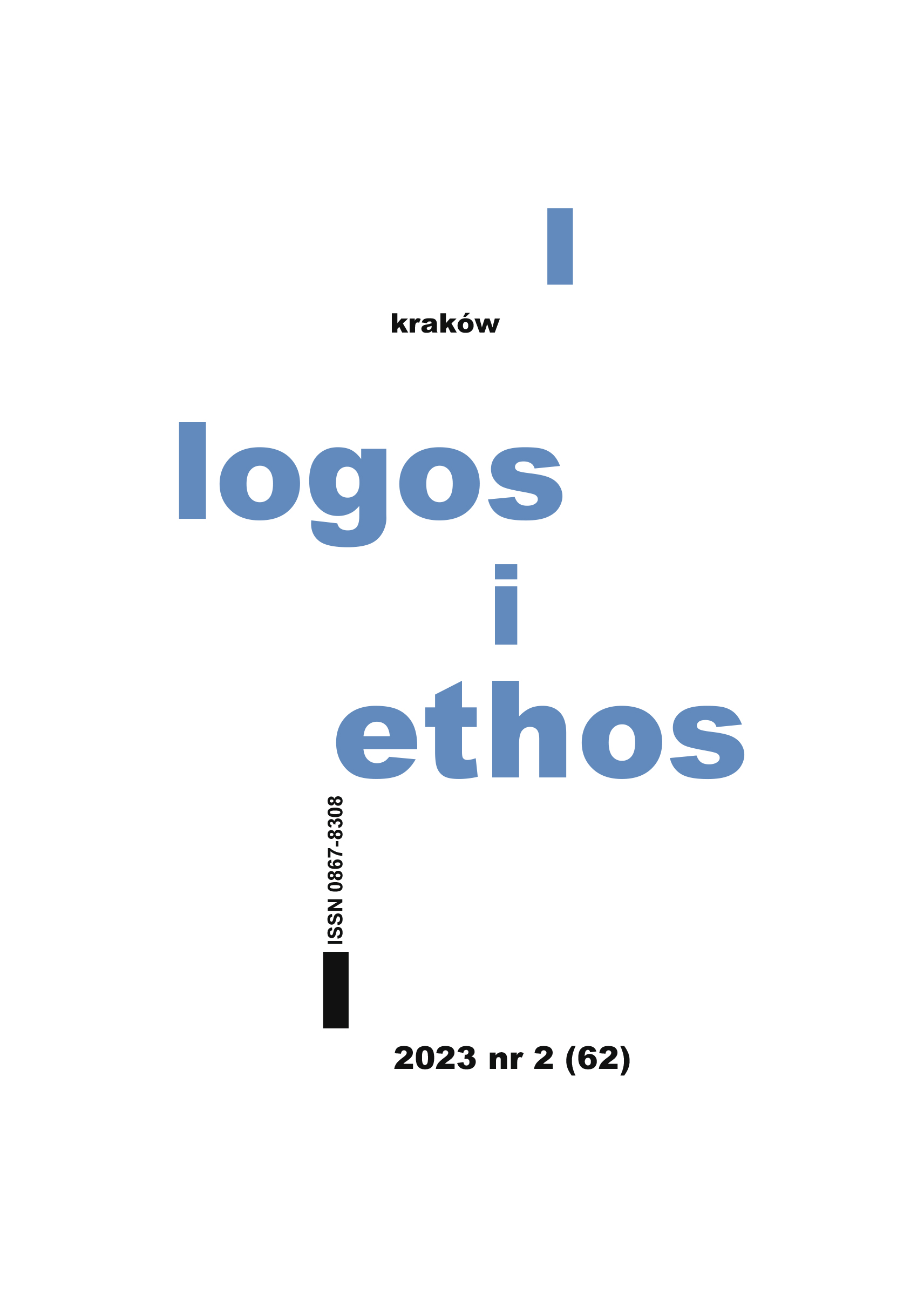Gods and people in literature and philosophy. God by the picture of human or human by the picture of god? Homeric vision of reality versus Heraclitus’ vision of reality
DOI:
https://doi.org/10.15633/lie.62202Keywords:
philosophy of religion, gods, religion, literatureAbstract
The article deals with the theological issues of Homer and Heraclitus. The analysis of the works of Homer and the philosophical thought of Heraclitus serves to compare and contrast them extracting significant differences regarding the image of god and man. The author develops both literary and philosophical understanding of gods. She compares the man-god relationship in early Greek literature and philosophy. There is an interesting intrinsic tension in the literary tropes that can only be understood if the religious function of this literature is taken into account. The author tries to describe the vision of the world and the place of human beings in it in both sources: literature and philosophy. In philosophical writings, there can be seen a movement in the vision of the world structure: the gods become more inaccessible to humans, but humans gain the opportunity to become godlier if they follow a proper set of thoughts and actions proposed by philosophy. Religious poets were speaking of the past when the gods were approachable to people. Their fantasies were often mixed with old beliefs so that the divine-human world has as much wonder and eccentricity as dread. Philosophy conquers not only minds but also hearts, to convey them towards the ideal, bearing in mind the unattainable model of a virtuous man. While religion describes gods similar to humans, philosophy forges a new god-resemblant human figure.
References
Banek K., Historia religii: religie niechrześcijańskie, Zakład Wydawniczy Nomos, Kraków 2007.
Banek K., Mistycy i bezbożnicy: przełom religijny VI–V w. p.n.e. w Grecji, Wydawnictwo Uniwersytetu Jagiellońskiego, Kraków 2007.
Burkert W., Ancient Mystery Cults, Harvard University Press 1987.
Burkert W., Raffan J., Greek Religion, Harvard University Press, Cambridge 1985.
Burnet J., Early Greek Philosophy, 1920.
Clarke M., Manhood and Heroism, in: The Cambridge Companion to Homer, ed. R. Fowler, Cambridge University Press, 2004, p. 74–90 (Cambridge Companions to Literature).
Cornford F. M., From Religion to Philosophy. A Study in the Origins of Western Speculation, Princeton University Press, Princeton 1992.
Flacelière R., A Literary History of Greece, Taylor and Francis, Somerset 2008.
Homer, The Iliad, transl. A. T. Murray, William Heinemann, London, Harvard University Press, Cambridge 1924, http://www.perseus.tufts.edu/hopper/text?doc=Perseus%3Atext%3A1999.01.0134%3Abook%3D3.
Homer, Iliad, eds. D. B. Monro, Th. W. Allen, Oxford University Press, 1920 (Oxford Classical Texts).
Jaeger W. W., Robinson E. S., The Theology of the Early Greek Philosophers. The Gifford Lectures, 1936. Reprint. Clarendon Press, Oxford 1947.
Griffin J., Homer on Life and Death, Clarendon Press Paperbacks, 1980.
Kahn C. H., The Art and Thought of Heraclitus, Cambridge University Press, 1979.
Kearns E., The Gods in the Homeric Epics, in: The Cambridge Companion to Homer, ed. R. Fowler, Cambridge University Press, 2004, p. 59–73 (Cambridge Companions to Literature).
Krokiewicz A., Studia orfickie. Moralność Homera i etyka Hezjoda, Aletheia, Warszawa 2000 (Dzieła, 2).
Loffe O. S., Razvitie civilisticheskoy mysli v SSSR, Leningrad 1975.
Mrówka K., Heraklit: fragmenty. Nowy przekład i komentarz, Scholar, Warszawa 2004.
Narecki K., Obraz a myśl filozoficzna Heraklita z Efezu, TN KUL, Lublin 1981.
Narecki K., Logos we wczesnej myśli greckiej, Redakcja Wydawnictw Katolickiego Uniwersytetu Lubelskiego, Lublin 1999. Rozprawa habilitacyjna. Katolicki Uniwersytet Lubelski.
Nilsson M. P., Fielden F. J., A History of Greek Religion, 2nd ed., repr. Greenwood Press, Westport (Conn.) 1980.
Osborne R., Homer’s Society, in: The Cambridge Companion to Homer, ed. R. Fowler, Cambridge University Press, 2004, p. 206–219 (Cambridge Companions to Literature).
The Cambridge Companion to Homer, ed. R. Fowler, Cambridge University Press, 2004 (Cambridge Companions to Literature).
Vernant J. P., Mythe et Société en Grèce Ancienne, Paris 1974.
West M. L., The East Face of Helicon. West Asiatic Elements in Greek Poetry and Myth, Clarendon Press, Oxford 1997.
Wrotkowski W., Αιών. Wieczność w teologii Heraklita, “Przegląd Filozoficzny. Nowa Seria” 16 (2007) no. 1, p. 21–32.
Zeller E., Outlines of the History of Greek Philosophy, Longmans, Green, London 1886.
Downloads
Published
Issue
Section
License

This work is licensed under a Creative Commons Attribution 4.0 International License.
Authors who publish with this journal agree to the following terms:
- Authors retain the copyright and full publishing rights without restrictions, and grant the journal right of first publication with the work simultaneously licensed under a Creative Commons Attribution 4.0 International License that allows others to share the work with an acknowledgement of the work's authorship and initial publication in this journal.
- Authors are able to enter into separate, additional contractual arrangements for the non-exclusive distribution of the journal's published version of the work (e.g., post it to an institutional repository or publish it in a book), with an acknowledgement of its initial publication in this journal.
- Authors are permitted and encouraged to post their work online (e.g., in institutional repositories or on their website) prior to and during the submission process, as it can lead to productive exchanges, as well as earlier and greater citation of published work (See The Effect of Open Access).

